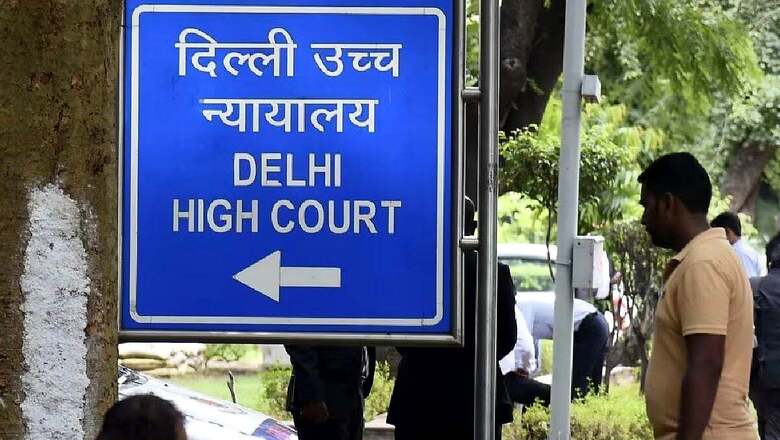
views
The Delhi High Court on Thursday observed that government servants cannot be excluded from the protection of rights guaranteed by Part III of the Constitution of India and set aside the 2019 Memorandum Order (M.O.) that de-recognised the Central PWD Engineers Association.
The court said that by virtue of Article 19(1)(c) of the Constitution of India, the right to form Association or Union or Cooperative Societies is a fundamental right even though recognition of such Associations by the Government may not be a fundamental right.
The division bench of Justice Kameswar Rao and Justice Anoop Kumar Mendirata said that the decision for ‘non-continuation of recognition’ could not have been taken by DG, CPWD, without the prior approval of the Competent Authority i.e. the Central Government, Ministry of Housing and Urban Affairs, in view of Rule 2(a) of CCS (RSA) Rules, 1993.
The court said, “The government servants cannot be excluded from the protection of the rights guaranteed by part III of the Constitution though the duties which they may discharge as a public servant might involve restrictions of freedom in terms of Article 19 of the Constitution of India. By virtue of Article 19(1)(c) of the Constitution of India, the right to form Association or Union or Cooperative Societies is a fundamental right even though the recognition of such Associations by the government may not be a fundamental right.”
The primary objective of the CCS (RSA) Rules, 1993, according to the court, is to grant recognition to any Service Association to encourage legitimate union activities in order to facilitate negotiations by the representative body, if necessary, and to maintain harmonious relations between the government and employees.
The bench was hearing the petition for writ filed by the Central PWD Engineers Association, challenging a 2019 order issued by the Central Administrative Tribunal. As alleged by the petitioners, the order denied the continuation of recognition of the petitioner Association on the grounds that the required documents as per the schedule specified in Rule 6(e) of the Central Civil Services (Recognition of Service Associations) Rules, 1993, were not submitted.
The petitioner’s counsel argued before the high court that, according to Rule 2(a) of the CCS (RSA) Rules, 1993, orders for the grant, continuation, or revocation of recognition could have been issued only by the “Government,” which refers to the Central Government.
Taking into account the petitioner’s argument, the court noted that a simple reading of the OM reveals that it was issued only with the sanction of the DG, CPWD, and “not the approval of the Central Government”.
“In view of above, the OM dated January 09, 2019 referred to above, treating the petitioner Association as unrecognized Service Association, without obtaining the approval of the Competent Authority i.e. Central Government, is liable to be set aside to aforesaid extent,” said the HC.
Responding to the petitioners’ claim that the Association was entitled to continuation of recognition in accordance with CCS (RSA) Rules, but that the respondents have intentionally delayed the process, the court stated that “the rights and privileges of the petitioner Association and office bearers could not be left in limbo” pending the continuation of recognition request.
“The recognition finally appears to have been granted to the petitioner Association in 2021 for a period of five years from the date of issue of the letter but the decision for the period 2009 to 2021 still needs to be reconsidered by the Competent Authority in accordance with law, in view of setting aside of OM dated January 09, 2019 to aforesaid extent. We accordingly deem it appropriate to direct the Competent Authority/respondents to take an appropriate decision in respect of the continuation of recognition in respect of petitioner Association from 2009 till 2021, in accordance with law,” it added.
In light of this, the court vacated the tribunal’s findings, thereby denying the petition to suppress the office memorandum dated January 9, 2019, in relation to the petitioner Association.
Upon dismissing the appeal, the court ordered, “The issue regarding the continuation of recognition of the petitioner Association for the period 2009-2021 be remanded to the Competent Authority for consideration in accordance with the law.”

















Comments
0 comment